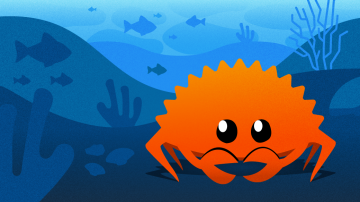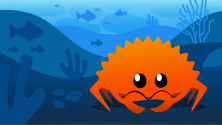The Rust language is getting more and more popular, as the combination of memory safety and zero-cost abstractions makes it a good fit for handling many tasks.
In addition, frequent releases, consideration for development ergonomics, and high-quality documentation are leading more people to learn Rust.
Whether you're new to Rust or have been using it for a while, you'll learn something new in Opensource.com's top 10 articles about Rust in 2020.
- If you already know C, read C vs. Rust: Which to choose for programming hardware abstractions.
- If you are curious about the similarities between Rust and Java, see Why I'm enjoying learning Rust as a Java programmer.
- If you are wondering why you should learn Rust, read Why I switched from Java to Rust.
- Want to know the basics about the Rust language? Read Learn about Rust and how to get started.
- Learn how to use the Rust tooling in Getting started with the Rust package manager, Cargo.
- Need to up your Rust game? Check out My top 7 functions in Rust.
- And 7 Useful keywords in Rust.
- If you use Vim as your main editor, Set up Vim as your Rust IDE.
- Need to do some low-level networking at the packet level? Don't miss Modernize network function development with this Rust-based framework.
- Finally, check out this compilation of Rust resources to get up to date on the language: What you need to know about Rust in 2020.
There is talk that the next edition of Rust will be Rust 2021, which is pretty exciting. What are you looking forward to the most about Rust in 2021? Please share your response in the comments.






Comments are closed.